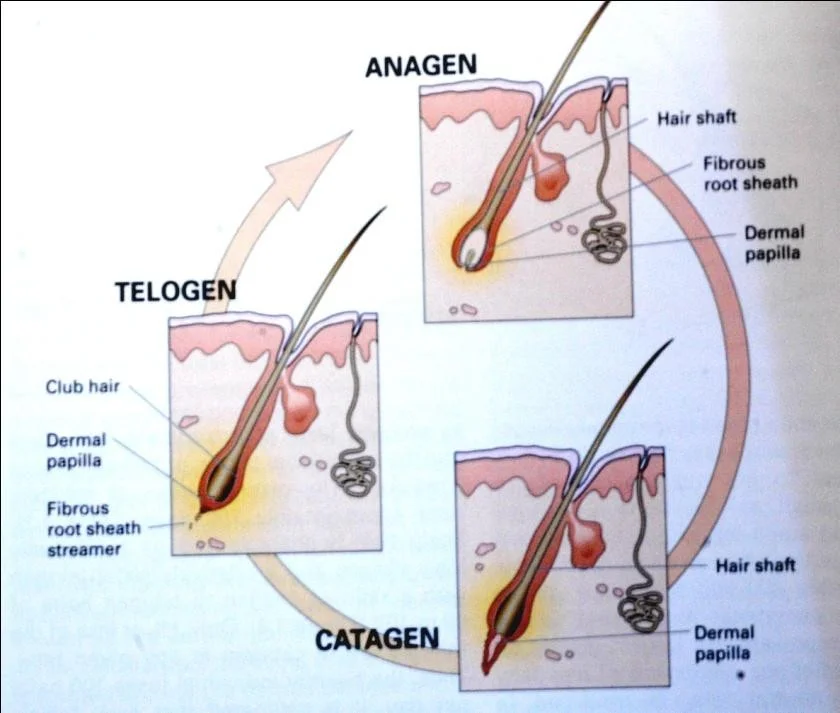TELOGEN EFFLUVIUM
It is a reaction pattern to a variety of physical and mental stressors represents a precipitous shift of a percentage of anagen hairs to telogen.
Telogen effluvium
- Chronic alopecia.
- Any stress whether it’s physiological or psychological can cause it-anemia-chronic diseases.
- There would not be complete loss of hair.
- Reversible (but may be become chronic)
- It takes 3-4 months for the hair to fall & may take months to regrow again.

Causes of Telogen Effluvium
None specific
- Endocrine
- Hypo or hyperthyroidism.
- Postpartum.
- Peri or postmenopausal state.
- Nutritional
- Biotin deficiency.
- Essential fatty acid deficiency.
- Iron deficiency.
- Protein deprivation.
- Zinc deficiency.
Causes
Physiologic
- Physiologic effluvium of the newborn
- Postpartum effluvium
Injury or stress
- High fever
- Severe infection
- Severe chronic illness
- Major surgery
- Hypo- or hyperthyroidism
- Crash diets, precipitous decrease of calories or protein (Fig. 11.38)
- Iron deficiency
- Essential fatty acid deficiency
- Biotin deficiency
- Drugs (Table 11.8)
Drugs
- Angiotensin-converting enzyme inhibitors.
- Anticoagulants.
- Antimitotic agents.
- Benzimidazoles.
- Beta blockers.
- Interferon
- Lithium
- Oral contraceptives.
- Retinoids.
- Vitamin A excess.
Physical stress
- Surgery.
- Systemic illness.
Psychological stress
Pathology
1. > 12% to 15% of terminal follicles are in telogen. 2. Follicle itself is not diseased. 3. No inflammation or dystrophic changes.
CLINICAL PRESENTATION
- Diffuse hair loss with clinically perceptible thinning of hairs usually 3-5 weeks of inciting signal and shedding continue for about 3-4 month after removal of inciting cause.
- 150 to > 400 hair loss daily.
- Hair density may take 6-12 months to return to base line.
- Pull test.
- Clip test.
TREATMENT
- No specific therapy.
- In majority cases hair will grow spontaneously within few month after removing inciting cause.
- In some patients with chronic telogen effluvium - 5% minoxidil solution.